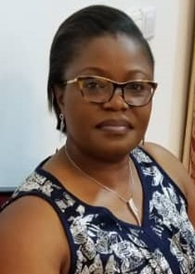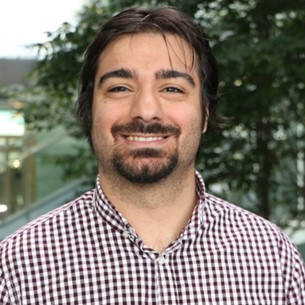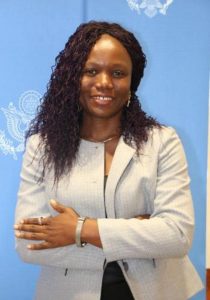Dr Nzweundji Justine Germo
Institute of Medical Research and Medicinal Plants Studies/ Ministry of Scientific Research and Innovation
Division of Research, Promotion and Innovation, Yaounde-Cameroon
Title: Tradition and Innovation in Agriculture in Cameroon – Perspectives and Challenges of Artificial Intelligence
Bio:
Dr Zweundji Justine Germo is a Plant Biotechnologist and Deputy Director of Research, Valorization and Innovation at the Institute of Medical Research and Medicinal Plants Studies (IMPM) in Cameroon. In 2022, she received a UMAPS fellowship at the University of Michigan. She further obtained the prestigious fellowship Unesco-l’Oréal for her PhD research in the US at Tropical Research and Educational Center, University of Florida in 2011 and at Alabama A&M University in 2013. She holds numerous grants and prizes including the prize of the best junior research of IMPM in 2015. Since 2017, she is a member of the steering committee of the Africa chapter of INGSA (International Network for Government Science Africa). In 2018, she received a postdoctoral research fellow at Geisenheim Hochschule University in Germany through TWAS-DFG. She is a fellow of the African Science Leadership Programme of Future Africa at the University of Pretoria in South Africa. Moreover, she is the President of the Cameroon Academy of Young Scientists and member of the Global Young Academy. She is a global Steering Committee member of UNESCO Open Science. She recently received the Female Science Talents fellowship of the Falling Walls Foundation.

Dr Ali Joan Beri Wacka
University of Buea, Cameroon
Title: Tech Diplomacy and Emerging Technologies, the African Context : Strategies of the Current State, Analyses and Roadmap for Resilience
Bio:
Ali Joan Beri Wacka holds a PhD in Digital Forensics. She has been a Lecturer at the University of Buea for more than 22 years in the Department of Computer Science and College of Technology. Her research interests are in cyber security, cyber criminality, cyber defense, cyber resilience and digital forensics. She also lectures cyber criminality at Cameroon’s National School of Administration and Magistracy (ENAM) in Yaoundé and sometimes gives talks at at EMIA. She contributes to fighting cyber crime in Cameroon by working with law enforcement, the judiciary and advising the government services on cyber security measures and investigating cybercrimes. She is currently the director of a newly created Center for Cyber Security, Cyber Defense and Digital Forensics at the University of Buea, Cameroon. She has attended and contributed to seminars, workshops and conferences in IT, Cyber security and Cyber Criminality across the country and abroad. She has also organized workshops to train law enforcement and the military in cyber security, cyber criminality and digital forensics in Cameroon. In 2020, she spoke at Cameroon’s Parliament on the importance of cyber ethics in fighting drugs and violence in schools and among youth. She advocates for cyber hygiene and cyber ethics in schools and workplace. She has mentored many students and young women who take interest in computer Science. The African Union, UNESCO and many other international organizations are soliciting her expertize. Her research interests are in cyber resilience, behavioral cyber security, use of machine learning and AI in digital forensics cyber diplomacy and immerging technologies. She contributes to the applicability and improvement of the law on cyber security and cybercrime in Cameroon and Africa in general.
She is a wife, mother, teacher, mentor and professional.
Abstract:
Emerging technologies are transforming governments, businesses, and citizens into a truly digital society. Robotization, financial systems, communication mechanisms and critical infrastructure are getting to an unbelievably decentralized internet. Innovative technologies such as Internet of things (IoT) services, Web3, blockchain, quantum computing and artificial intelligence have massive potential to strengthen democracies and global economic security while decreasing the digital divide. However, these technologies present some concerns namely: cyber threats, ethical and responsibility concerns, complexities around critical infrastructure and supply chains to name a few. These challenges must be addressed for resilience and ensuring continuity in business. Global tech diplomacy is driving regulations and modernization in this area.
In her keynote, Dr Ali will analyze the situation of tech disruptions and will explore the intersection and connections between diplomacy and emerging technologies in the public and private sectors. She will talk on how this can foster policies to promote innovation, as well as build resilient cyber systems to ensure trust and transparency. The expert will expose the strategic position that Africa should adopt in this multilateral worldwide tech diplomacy. She will provide a roadmap of federated strategies that diplomacy should foster to cope with technological disruptiveness in this smart world threatened by split connectivity.

Dr Amro Najjar
Luxembourg Institute of Science and Technology
Title: Guaranteeing Responsibility and Ethics in Emerging Technologies for Innovations: The Case of Artificial Intelligence
Bio:
Dr Amro Najjar is a Researcher at the Luxembourg Institute of Science and Technology and former manager of AI Robolab at the University of Luxembourg. He obtained his PHD at École des Mines de Saint-Étienne in computer science. His main research interests are cloud computing, multi-agent systems, user-centric approaches, AI and Ethics, and Explainable AI. He co-created and chaired EXTRAAMAS, one of the key scientific workshops in XAI and Ethics. His main goal is to develop XAI considering the ethical considerations when developing and deploying the technology.


